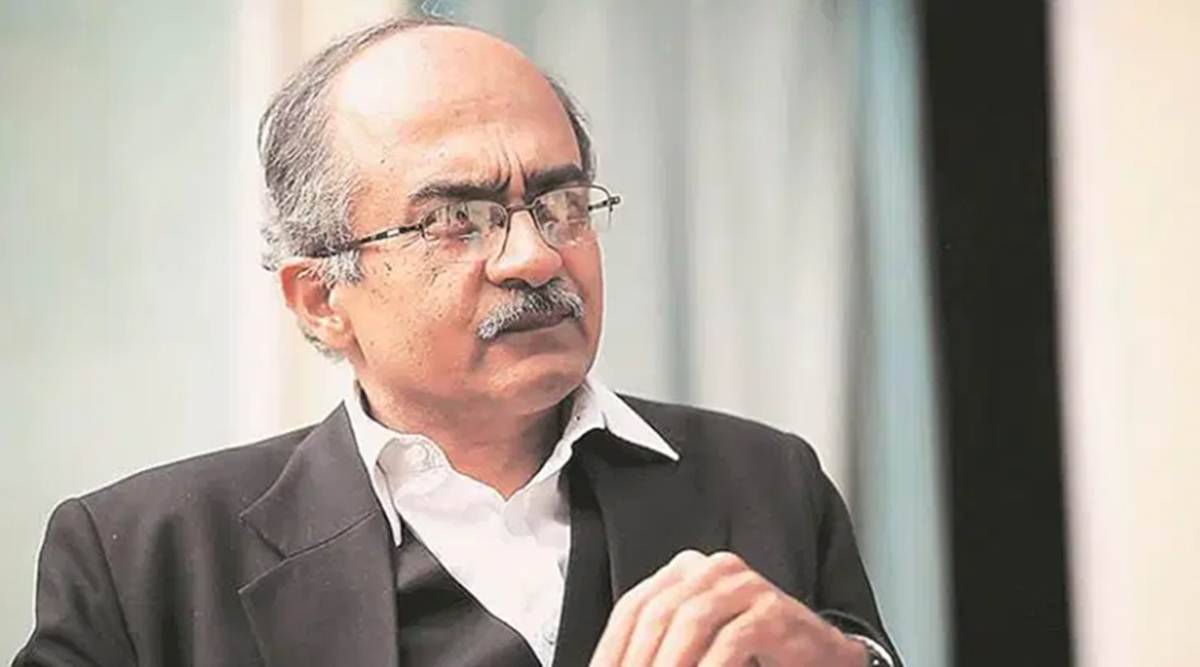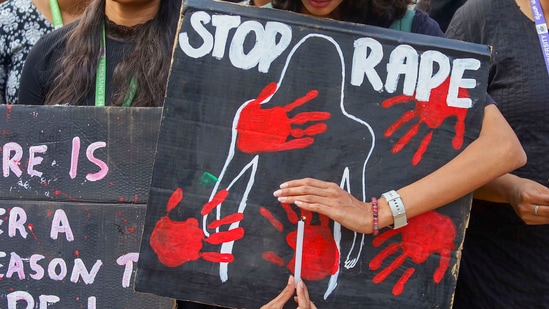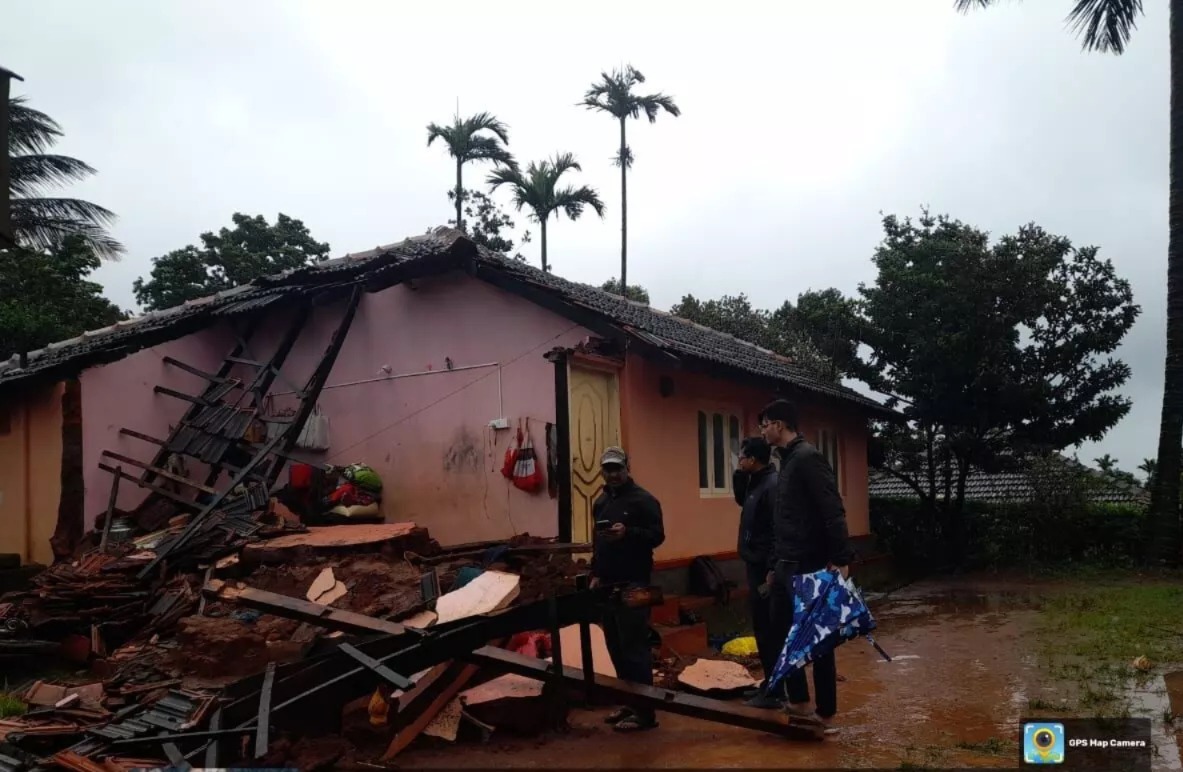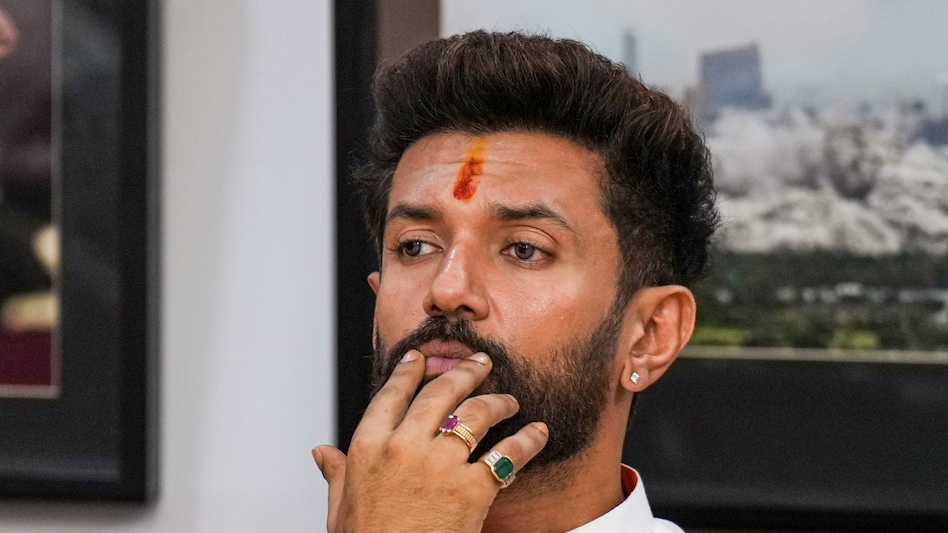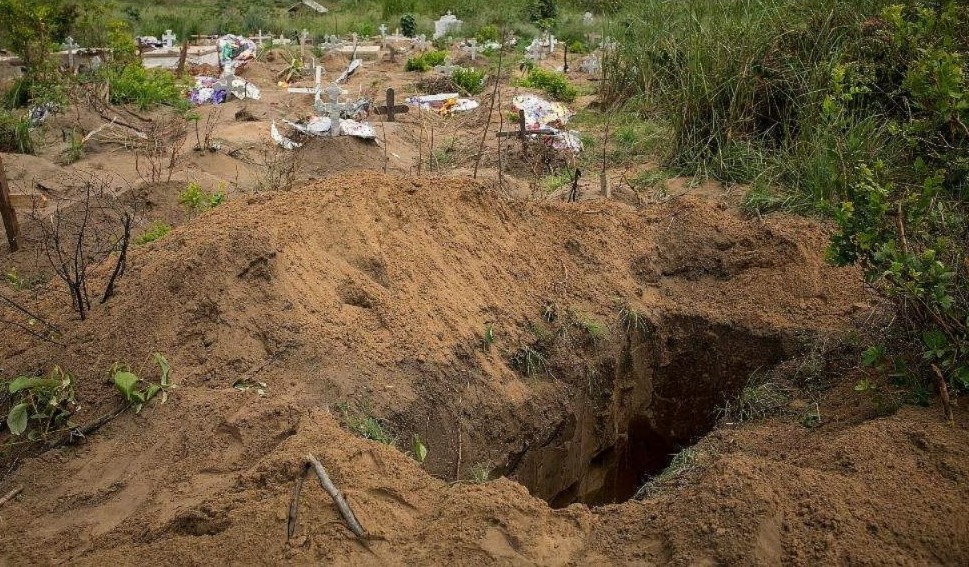On 14 August, a three-judge bench of the Supreme Court, headed by the judge Arun Mishra, held advocate Prashant Bhushan guilty of contempt of court for two tweets he had posted in June 2020, with references to the incumbent and previous chief justices of India. In a 2009 interview with the Tehelka magazine, Prashant Bhushan had also said that half of the last sixteen or seventeen chief justices of India were corrupt.
The Swaraj Abhiyan Movement led by activist Yogendra Yadav, is running a campaign of publicizing the questions that Prashant Bhushan had raised about eight of the 18 CJIs between 1991 and 2010. Here are the extracts from the ‘Tehelka’s interview of Prashant Bhushan, the claims he made about the CJIs, and the questions he raised about them.
YK Sabharwal:
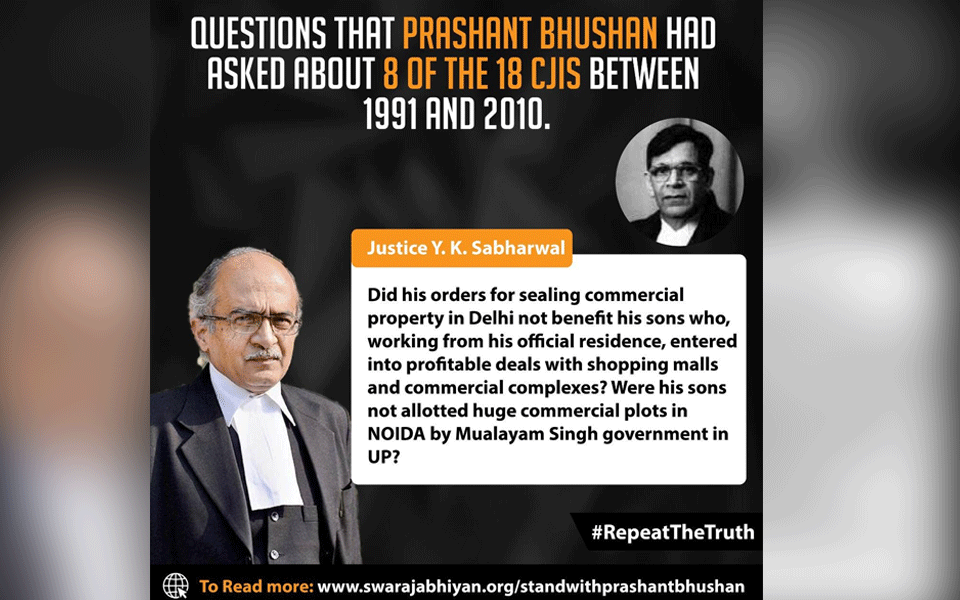
YK Sabharwal, the thirty-sixth CJI, passed a series of orders to demolish illegally constructed commercial complexes in Delhi. This caused the value of floor space in legal commercial properties such as shopping malls to shoot up. After Sabharwal’s retirement, it was reported that, at the height of the demolition drive, his sons’ businesses had received millions of rupees in funding from owners of malls in and around the capital.
Prashant Bhushan had questioned Sabharwal and had stated “Did his orders for sealing commercial property in Delhi not benefit his sons who, working from his official residence, entered into profitable deals with shopping malls and commercial complexes? Were his sons not allotted huge commercial plots in Noida by Mulayam Singh government in UP?”
Justice Rangnath Mishra:
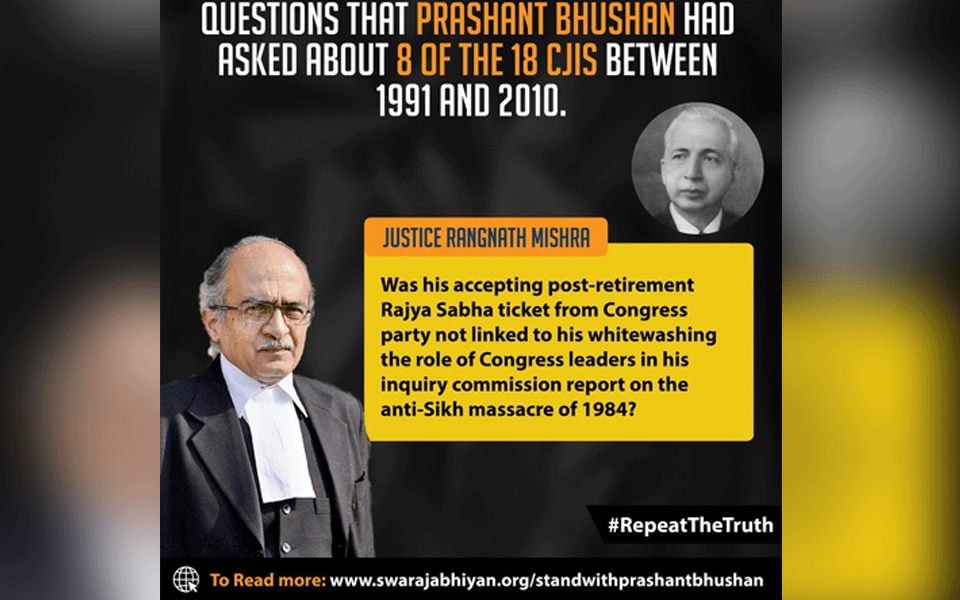
On his accepting Rajya Sabha ticket from the Congress after retirement, Prashant Bhushan questioned the former CJI if it was linked to the whitewashing of Congress leaders in his commission on the anti-Sikh massacre of 1984.
“Was his accepting post-retirement Rajya Sabha ticket from Congress party not linked to his whitewashing the role of Congress leaders in his inquiry commission report on the anti-Sikh massacre of 1984?” Bhushan had questioned.
Justice KN Singh:
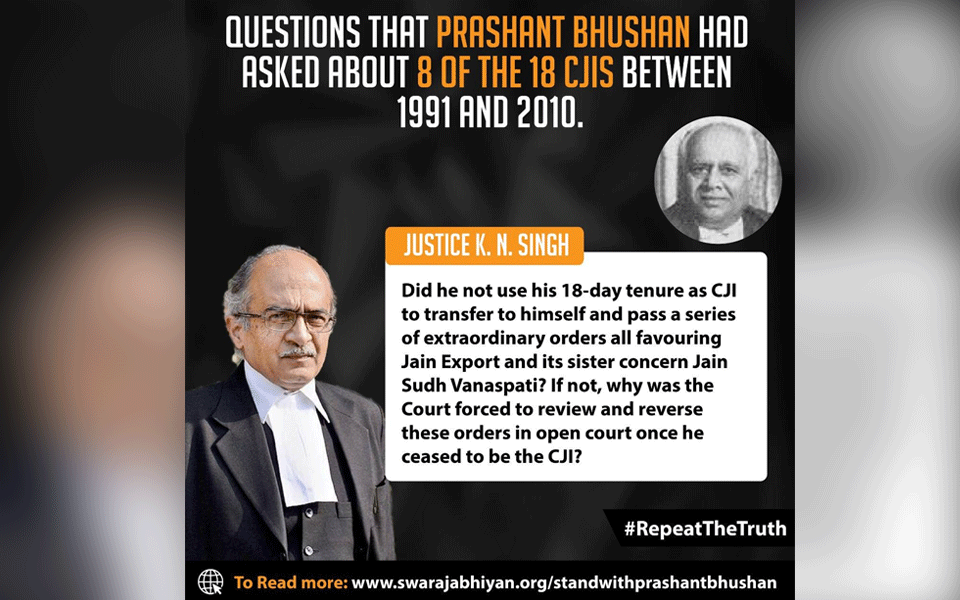
Questioning the 18-day tenure as the CJI, Bhushan had questioned if he hadn’t used his tenure to pass a series of extraordinary order for Jain Export and its sister concern Jain Sudh Vanaspati?
“Did he not use his 18-day tenure as CJI to transfer to himself and pass a series of extraordinary orders all favoring Jain Export and its sister concern Jain Sudh Vanaspati? If not, why was the Court forced to review and reverse these orders in open court once he ceased to be the CJI?” he questioned.
Justice AS Anand:
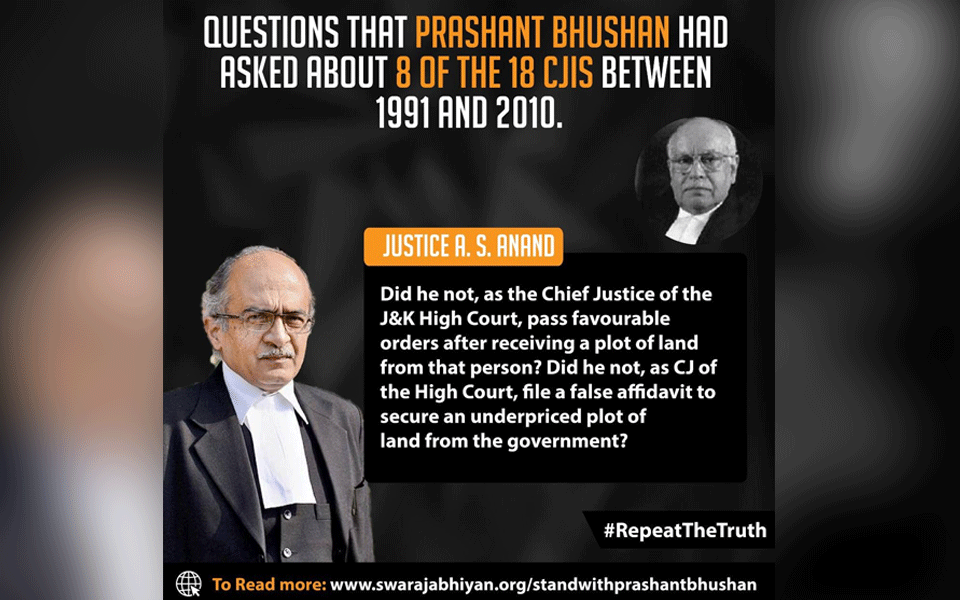
AS Anand, the twenty-ninth CJI, was accused of nepotism, and involvement in corrupt real-estate deals. The charges surfaced after his elevation, and he never faced impeachment proceedings. Bhushan questioned this and added “Did he not, as the Chief Justice of the J&K High Court, pass favourable orders after receiving a plot of land from that person? Did he not as CJ of the High Court, file a false affidavit to secure an underpriced plot of land from the government?”
Jusitce AM Ahmadi:
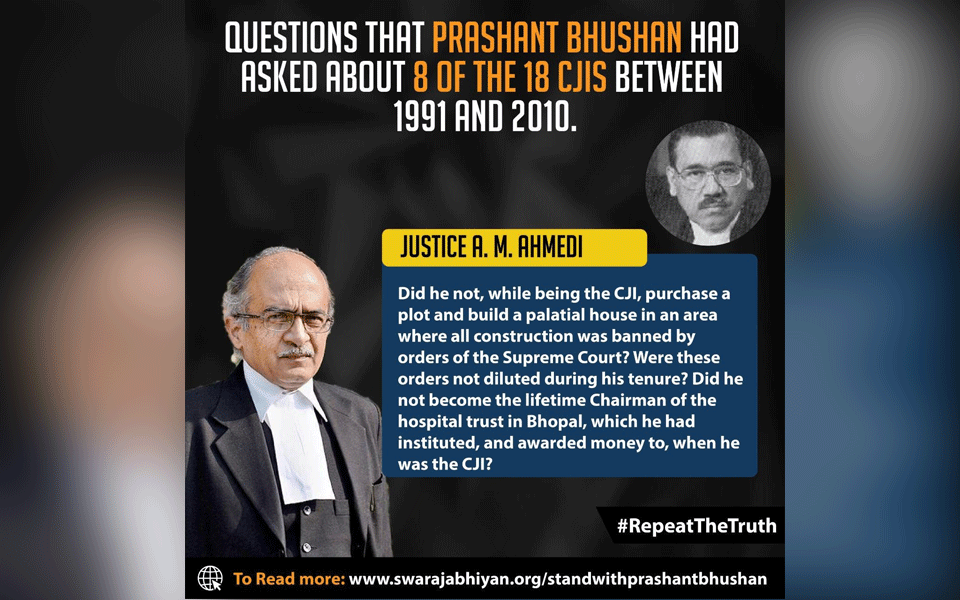
AM Ahmadi, the twenty-sixth CJI, quashed the charge of culpable homicide against Union Carbide in a case arising from the Bhopal gas disaster. As a gesture of conciliation, he ordered the corporation to set up a hospital in the city. After he retired, Ahmadi was appointed the chairman, for life, of the trust managing the hospital.
Bhushan also questioned if he had not purchase a plot and build a palatial house while being the CJI in an area where all construction was banned.
“Did he not, while being the CJI, purchase a plot and build a palatial house in an area where all construction was banned by the order of the SC? Were these orders not diluted during his tenure? Did he not become the lifetime chairman of the hospital trust in Bhopal, which he had instituted, and awarded money to, when he was the CJI?” Bhushan had asked.
KG Balakrishnan:
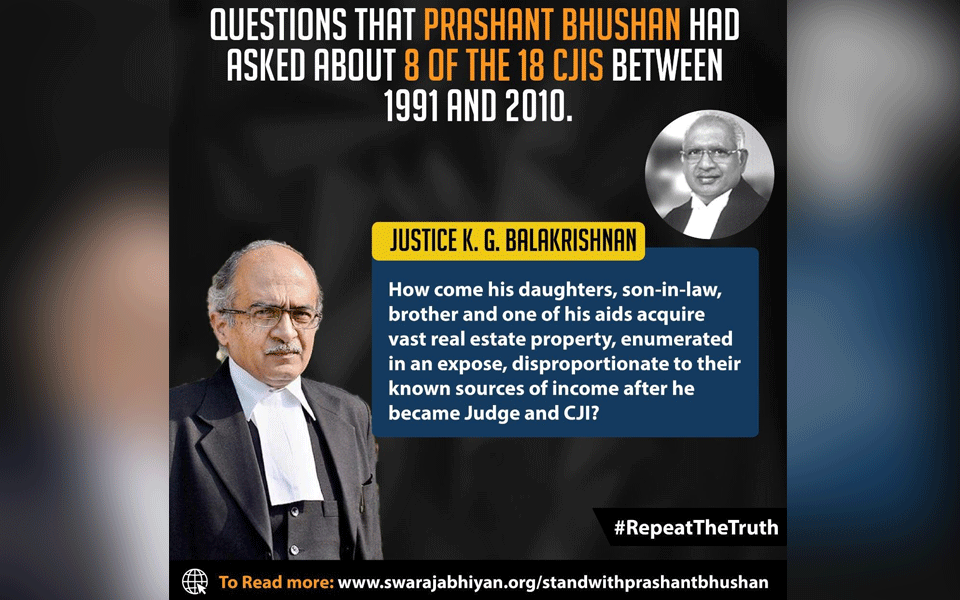
KG Balakrishnan, the thirty-seventh CJI, saw his family’s fortunes rise dramatically during his tenure. One of his sons-in-law acquired assets worth over ten crore rupees. Balakrishnan’s brother, an officer of the Kerala High Court who resigned after charges of corruption, came to own a farmhouse in Tamil Nadu. The judge’s nephew started large business ventures.
Questioning this, Bhushan had asked “How come his daughters, son-in-law, brother and one of his aids acquire vast real estate property, enumerated in an expose, disproportionate to their known sources of income after he became the Judge and CJI?”
Justice S H Kapadia:
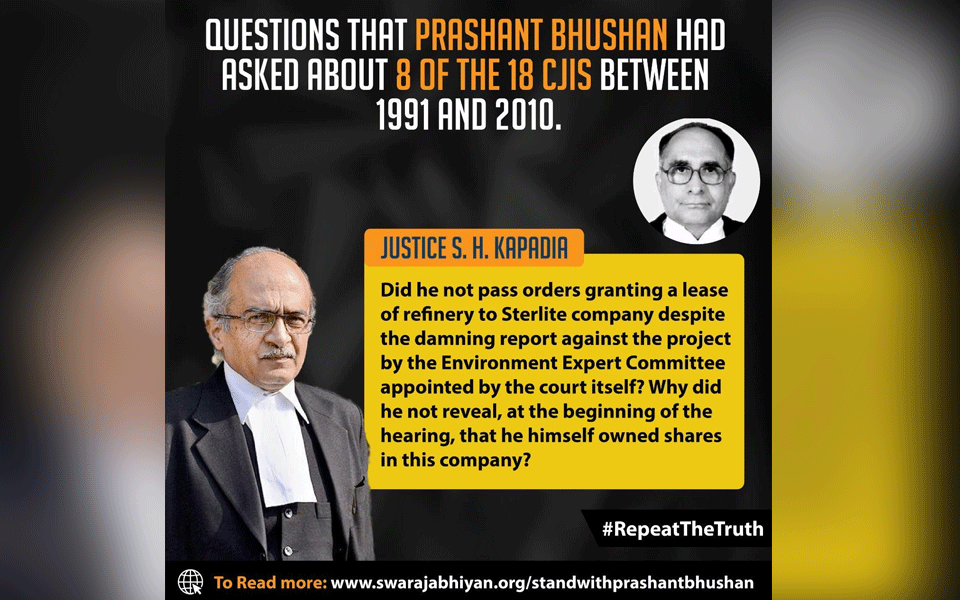
Questioning Justice SH Kapadia, Bhushan had said “Did he not pass order granting a lease of refinery to Sterlite Company despite the damning report against the project by the Environment Expert Committee appointed by the court itself? Why did he not reveal, at the beginning of the hearing, that he himself owned shares in this company?”
MM Punchhi:
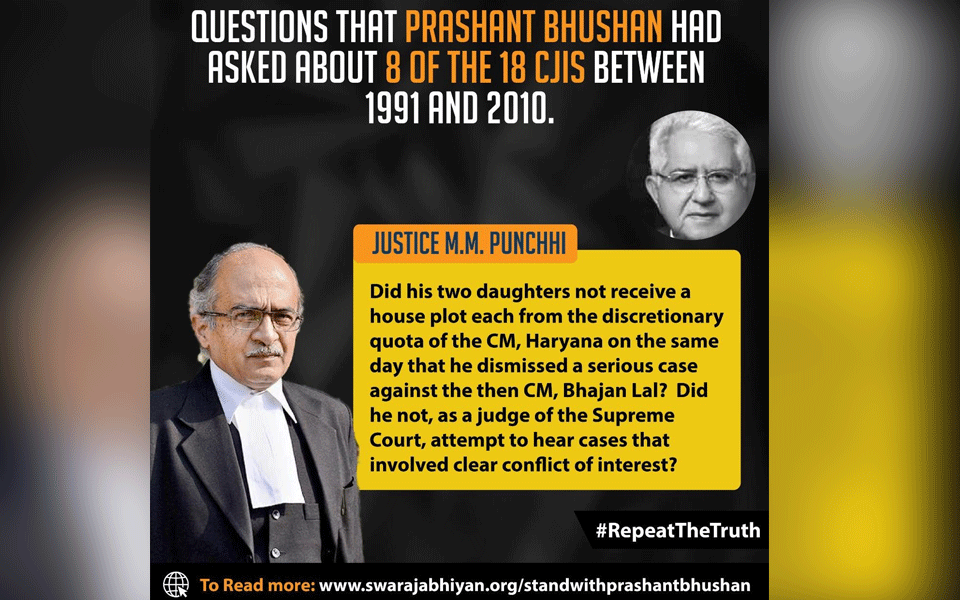
MM Punchhi, the twenty-eighth CJI, faced the threat of dismissal before he assumed the office. The Rajya Sabha was presented with a motion for his impeachment on charges of copious wrongdoing. He had gone beyond the provisions of the law to acquit a businessman earlier convicted of breach of trust. His daughters had received plots of land at the discretion of the chief minister of Haryana, the Congress leader Bhajan Lal, on the same day that Punchhi dismissed a case alleging malfeasance by the chief minister. Punchhi had allegations of fixing cases, trying to hear matters in which he was an interested party, and more. The motion did not receive the required number of signatures in the Rajya Sabha before Punchhi was sworn in. JS Verma, the twenty-seventh CJI, had recommended his elevation to the president.
Question him, Bhushan had raised questions stating “Did his two daughters not receive a house plot each from the discretionary quota of the CM, Haryana on the same day that he dismissed a serious case against the then CM, Bhajan Lal? Did he not, as a judge of the Supreme Court attempt to hear cases that involved a clear conflict of interest?”
Let the Truth be known. If you read VB and like VB, please be a VB Supporter and Help us deliver the Truth to one and all.
Gayaji (PTI): A woman here has alleged that she was gang-raped inside an ambulance which drove her to a hospital after she fainted during a government recruitment test, police said on Saturday.
Two persons, identified by the complainant who had appeared at a recruitment drive for home guards, have been arrested, they said.
"When the woman fainted, on July 24, she was rushed to the Anugrah Narain Medical College and Hospital at Gayaji in an ambulance. After she regained consciousness, she alleged that she was raped inside the vehicle," said SP (Town), Gayaji Ramanand Kumar Kaushal.
"We thereafter detained the driver and a technician who were in the ambulance. The woman also identified them. Their reply was not satisfactory, so they were arrested and booked under relevant sections of the Bharatiya Nyay Samhita," he added.
Kaushal said the medical examination of the complainant has been completed, and based on the findings of the reports, further action will be taken.
Meanwhile, the incident drew strong criticism from Union minister Chirag Paswan, who supports the NDA government in the state, as well as the opposition.
Before leaving for Gayaji to address a rally, Paswan told reporters in Patna, "The incident is deplorable. The guilty may have been caught, but the administration is obviously unable to prevent such crimes. The situation is scary, and I regret that I am supporting a regime that is incapable of controlling law and order."
Leader of the opposition in the state assembly, Tejashwi Yadav, shared on X a news clipping of the incident with the hashtag "vote out of power the Nitish Kumar government to protect the girl child (Nitish sarkar Hatao beti bachao).
The RJD leader also alleged that Bihar was under the "rule of demons (rakshas raj)" and accused Chief Minister Nitish Kumar and "his two so-called deputies" of a "criminal silence" on such incidents.
State Congress president Rajesh Kumar alleged, "The incident at Gayaji is reflective of a collapse in law and order, which is not surprising given the unruly behaviour of the ruling dispensation as witnessed in the recently held assembly session. Our party is committed to ensuring that the girl gets justice."

